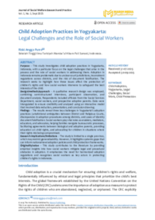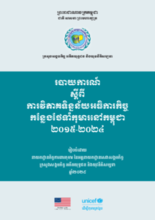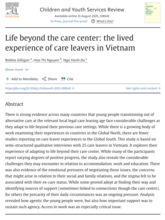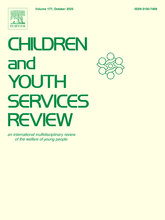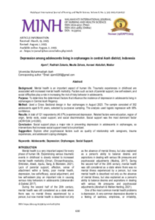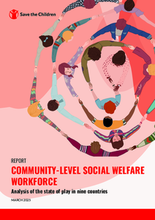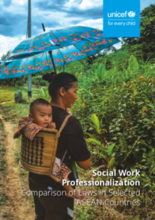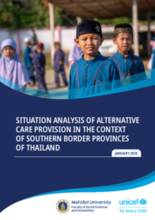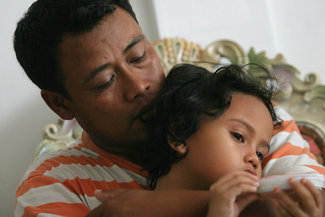

Displaying 11 - 20 of 752
This study examines adoption practices in Yogyakarta, Indonesia, highlighting legal challenges such as jurisdictional ambiguities, inconsistent procedures, and document falsification. It emphasizes the crucial role of social workers in navigating these obstacles, advocating for children’s rights, and supporting families throughout the adoption process.
This report provides an in-depth analysis of trends and progress in reducing the number of residential care facilities in Cambodia and the children placed in them between 2015–2024.
This study examines the transition experiences of 25 care leavers in Vietnam through semi-structured qualitative interviews. While many showed resilience and made progress, they also faced significant challenges related to housing, work, education, social relationships, and stigma, highlighting the crucial role of external support in sustaining their agency.
This article traces the evolution of Cambodia’s system for caring for orphans and vulnerable children (OVC), shaped by political stabilization, emerging child protection concerns, international advocacy, and gradual state engagement. While Cambodia now has a solid policy framework, weak government prioritization, poor interagency coordination, and limited local capacity hinder implementation, leaving proponents to push for broader political commitment, balanced international support, and stronger responses to root causes such as poverty and migration.
This special issue of the Children and Youth Services Review concerns the governance of children's care systems in low and middle-income countries, with a focus on Cambodia, Uganda and Zambia. The special issue focuses on the political and bureaucratic factors that shape priority for and the effectiveness of national children's care systems in low and middle-income countries.
This study examined factors influencing depression among adolescents living in orphanages in Central Aceh Regency, Indonesia. The findings highlight the need to prioritize interventions that strengthen social support networks, while also exploring additional psychosocial factors such as caregiver relationships, trauma experiences, and coping strategies.
This report, based on a study across nine countries, examines how to strengthen the community-level social welfare workforce (CLSWW) as a vital but under-resourced part of national child protection systems. It calls for context-specific strategies that clearly define roles and competencies, build capacity, and align with local norms, mechanisms, and resources to enhance child protection outcomes.
This paper provides a comparative analysis of social work professionalization in the Philippines, Thailand, Indonesia and Singapore. By examining the different approaches across the countries, policymakers will have examples of practices that have been effective elsewhere and adopt these to suit the context of Malaysia.
UNICEF Malaysia is seeking an international consultant to provide high-level technical support on alternative care, including strategy development, stakeholder engagement, advocacy, and technical assistance on de-institutionalisation and reforming of the alternative care system in Malaysia.
This study addresses a critical knowledge gap regarding alternative care in Thailand's Southern Border Provinces (Pattani, Yala, Narathiwat, Satun, and Songkhla), where the population is predominantly Muslim with a strong ethnic Malay identity. The research investigates various forms of alternative care, including institutional care (Pondok and Hafiz institutions, government boarding schools, private orphanages) and family-based care, examining the quality of care, available social services, and cultural context.

